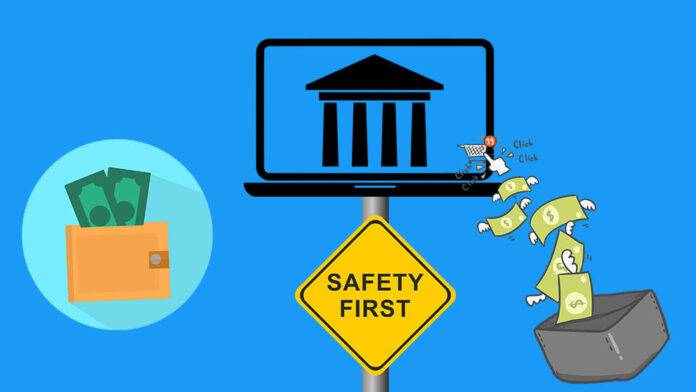BEST CRYPTOCURRENCY WALLET
The best cryptocurrency wallet is determined by your unique requirements and preferences. Cryptocurrency wallets allow you to protect sensitive information while also gaining control of your digital assets. Non-custodial wallets are less forgiving of errors such as lost passwords and necessitate faith in the wallet’s hardware and software.
Cryptocurrency wallets can take the form of external hardware devices or software that runs on your mobile device or computer. They offer more control over your digital currency than using a standard account at a cryptocurrency exchange or brokerage. The best methods for holding cryptocurrency include purchasing hardware wallets for offline storage and non-custodial software wallets or apps.
To choose a wallet, visit the website of the cryptocurrency you want to store. There are many one-time solutions designed for each cryptocurrency, but if you’re considering protecting multiple cryptocurrencies in one place, it’s worth considering.
Cryptocurrency wallets provide users with a digital solution to securely store and manage blockchain and cryptocurrency assets. They allow users to spend, receive and trade cryptocurrencies and are multi-asset solutions, allowing users to hold multiple cryptocurrencies. Cryptocurrency wallets do not physically store blockchain assets but rather store public and private keys. Public keys are pieces of digital code attached to a decentralized blockchain, while private keys are unique to an individual’s wallet. Owners use their private keys to make all transactions using the cryptocurrency they own.
Cryptocurrency wallets can be used by businesses that accept payments through cryptocurrency payment gateways to securely store or exchange blockchain assets. To qualify for inclusion in the Cryptocurrency Wallet category, a product must allow users to store private keys linked to a blockchain ledger, provide a means of communication with the blockchain, and provide security measures to ensure that only the owner of the private keys can access it. Blockchain assets.

9 BEST CRYPTOCURRENCY WALLET
The following are some of the most popular types of cryptocurrency wallets:
Coinbase Wallet: Coinbase Wallet is a well-known cryptocurrency exchange that provides three wallets: Coinbase dApp Wallet, Coinbase Exchange, and a mobile app. It supports hundreds of thousands of cryptocurrency assets and is linked to major decentralized exchanges such as Uniswap, Sushiswap, 1inch, and TraderJoe. Coinbase Wallet is a non-custodial wallet that gives you complete control over your private keys and is available on both mobile and desktop platforms. It supports 98% of offline money, needs two-factor verification, and has a 24-hour security department.
MetaMask: MetaMask is a popular mobile wallet and browser plugin that is well-known for its simple UI and support for Ethereum NFTs and DeFi protocols. It does not, however, support other blockchains such as Bitcoin and Cardano. Despite this, MetaMask is used by over 30 million people and has the ability to manually integrate other blockchains such as Binance Smart Chain and Polygon.
Trust Wallet: Binance’s Trust Wallet, a mobile-only wallet, is a decentralized wallet service that supports numerous cryptocurrencies as well as staking directly from the app. It is compatible with Binance and Binance.US, allowing for seamless trade and asset movement between the two platforms. Trust Wallet works independently across over 70 blockchains and is accessible via an iOS/Android app as well as a Chrome extension.
Trezor: Trezor, a popular Bitcoin hardware wallet that competes with the Ledger Nano, provides strong security features like as cold storage and a time delay for erroneous PINs. Trezor, which has a touchscreen display and supports over 1,600 cryptocurrencies, is one of the most affordable on the market, with the Trezor One costing $69. Trezor, unlike Ledger, does not integrate with hot wallets.
Electrum: Electrum is a free, open-source wallet that only works with Bitcoin, the market’s most valuable cryptocurrency. It supports two-factor authentication, easy connectivity to cold storage, and multisignature transactions. Electrum is available as a desktop client as well as an Android app, but its capabilities set it apart for Bitcoin hardcore users. Offline storage of private keys is possible, and multi-sig permissions are supported. Electrum’s official website offers storage advice for people wishing to store just one cryptocurrency.
SafePal: SafePal is a well-known hot wallet for cryptocurrency aficionados, with over 6 million users in 190 countries. It supports major cryptocurrencies such as Dai (DAI) and TrueUSD (TUSD) and integrates with Binance for easy cryptocurrency trading.
SafePal provides cold and hot cryptocurrency storage, with a hardware cold wallet starting at $50. Customer assistance, on the other hand, is restricted and needs a “submit a request” form. SafePal is a hybrid wallet that includes both offline and online components, as well as a mobile app and browser extension. It does not, however, have a dedicated desktop app.
Crypto.com DeFi Wallet: Crypto.com DeFi Wallet is a wallet designed for decentralized finance (DeFi), a sector of the cryptocurrency world focused on lending, savings, and other financial products without the need for a broker center. Users can interact with DeFi products via mobile apps, browser extensions, or desktop apps that integrate with Ledger hardware wallets. The wallet supports over 1,000 assets, including popular stablecoins and the top 20 cryptocurrencies by market capitalization.
It supports staking of Ethereum, Cosmos (ATOM) and Crypto.com’s native Chronos (CRO) tokens and offers discounts on select tokens. Security features include two-factor authentication (2FA), password encryption, and biometric authentication. Crypto.com was hacked in January 2022 but no funds were compromised. The wallet is integrated with the Crypto.com exchange and provides storage for NFTs.
Exodus: Exodus is a simple cryptocurrency wallet that supports over 300 cryptocurrencies and is available on PCs, mobile devices, and web browsers. It supports hundreds of blockchains and has an easy-to-use dashboard with real-time prices. Exodus also provides users with built-in exchange, chat, and email assistance. It supports over 225 coins and provides new users with educational resources and instructional videos. The wallet also serves as a decentralized exchange (DEX), enabling for trade through decentralized apps without the need for multiple credentials.
Exodus is a bitcoin education leader that is coupled with Trezor for offline storage. It supports 364 coins and provides staking for Ontology, Cosmos, ALGO, Tezos, and SOLANA.
Coinomi: Coinomi is a secure multi-asset wallet that supports 125 blockchain networks, over 1 million cryptocurrencies and NFTs, and provides native support and genuine ownership for 1,770 coins and tokens.
Conclusion: To get started with cryptocurrency, consider a non-custodial wallet like Coinbase Wallet or MetaMask for ease of use and control of private keys. As your experience increases, consider upgrading to a hardware wallet for added security. For beginners, eToro is the best choice, a managed custodian with a user-friendly web wallet and mobile app that offers cold storage and two-factor authentication. It also functions as a cryptocurrency exchange.
